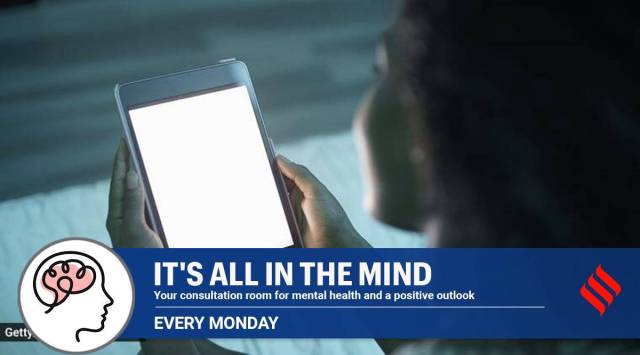Why cutting screen time on social media by half can restore a teen’s body image
‘Reducing social media use significantly improves body image in teens because you have more time for inter-personal relationships that give you a much better sense of self-worth in young adults,’ says Dr Satish Kumar CR, Consultant, Clinical Psychology, Manipal Hospitals, Bengaluru
 "The study talks of a significant reduction in screen time, about 50 per cent, as having a positive spinoff." (Photo: Getty Images/Thinkstock)
"The study talks of a significant reduction in screen time, about 50 per cent, as having a positive spinoff." (Photo: Getty Images/Thinkstock) Teens and young adults who reduced their social media use by 50 per cent for just a few weeks saw a significant improvement in how they felt about both their weight and their overall appearance compared with peers who maintained consistent levels of social media use, according to research published by the American Psychological Association.
“Adolescence is a vulnerable period for the development of body image issues, eating disorders and mental illness,” lead author Gary Goldfield, PhD, of Children’s Hospital of Eastern Ontario Research Institute, was quoted as saying. “Youth are spending, on average, between six to eight hours per day on screens, much of it on social media. Social media can expose users to hundreds or even thousands of images and photos every day, including those of celebrities and fashion or fitness models, which we know leads to an internalization of beauty ideals that are unattainable for almost everyone, resulting in greater dissatisfaction with body weight and shape.”
“Our virtual self is different from the real self. What we are trying to do on social media is create a version of ourselves to compete with those already existing online and score in the race of appearance consciousness. If a person is ignored on social media and does not get likes and comments on a post, no matter how real and honest that person looks, the young adult can feel sad, irritated, and even anxious because at that stage in life, looks are a badge of identity,” says Dr Satish Kumar CR, consultant-clinical psychology, Manipal Hospitals, Old Airport Road.
“The idea is to get noticed and talked about. It is more like seeking reassurance or validation from outside sources. So, because of this, the internal locus of control, that is how a person sees himself/herself, decreases. Now, people who really don’t post many pictures don’t seek any validation from the outside. So, that is how social media and look consciousness is directly proportionate. Also posting on social media doesn’t mean a one-time exercise. Users keep on checking their phones for likes and comments. Some of them keep checking their phone for an extra like or comment even while going to sleep and wake up in the middle of the night or early morning with a start just to check their social media equity. It is nothing but obsessive behaviour. It is this anticipation and anxiety of winning a popular verdict that is fuelling screen time. Obviously, an increase in screen time means reduced activities, particularly the meaningful, pleasurable and master-oriented ones. It also means lesser inter-personal relationships. So, without a fallback ecosystem, most teens indulge in stress-eating and binge-eating to counter their negative body image. Some teens become agitated, restless and angry, and they simply feel like they are not accepted by society,” says he.
What reduced screen time does, he explains, is bring back the child into a real world of perception, where body image is just one part of perception, capability, personality and talent are far more important. “This holistic view is bound to impact the teen’s sense of identity. The study talks of a significant reduction in screen time, about 50 per cent, as having a positive spinoff. Now if cell phone usage in schools and homes could be moderated, it would significantly help teens negotiate a sensitive phase in their lives and help them set real priorities, not fake ones,” he adds.
To better understand the causal effects of reducing social media use on body image, Goldfield and his colleagues previously conducted a pilot study with 38 undergraduate students with elevated levels of anxiety and/or depression. Some of the participants were asked to limit their social media use to no more than 60 minutes per day, while others were allowed unrestricted access. Compared with participants who had unlimited access, participants who restricted their use showed improvements in how they regarded their overall appearance (but not their weight) after three weeks. Due to the small sample size, though, the researchers were unable to conduct a meaningful analysis of the effect of gender.



- 01
- 02
- 03
- 04
- 05




























